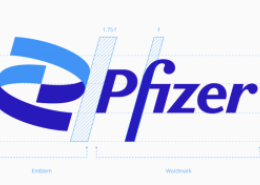Jeff Settleman, Ph.D., Joins Pfizer to Lead Oncology Research & Development
Pfizer Inc. (NYSE: PFE) announced today that Jeff Settleman, Ph.D., will join the company as Senior Vice President and Group Head of Oncology Research & Development, leading all early oncology research, from discovery to proof of concept clinical studies. Dr. Settleman, a leader in molecularly targeted cancer therapeutics, the epigenetics of cancer drug resistance, and personalized cancer medicine, will report directly to Mikael Dolsten, M.D., Ph.D., Chief Scientific Officer and President of Worldwide Research, Development and Medical at Pfizer, and will be based in La Jolla, California.
“Dr. Settleman brings to Pfizer a breadth of experience in fundamental cancer biology, cancer genetics, and innovative thinking related to the role of tumor heterogeneity in the development of drug tolerance and resistance. I look forward to seeing his expertise help Pfizer further accelerate potential breakthroughs for people living with cancer,” said Dr. Dolsten. “Dr. Settleman’s distinguished career in both academic research and drug discovery will be critical to Pfizer’s continuous pursuit of new therapeutic paradigms in cancer research.”
Dr. Settleman will join Pfizer effective July 1 from Calico Life Sciences, where he was Distinguished Principal Investigator and Head of Oncology Research. Prior to Calico, Dr. Settleman led Discovery Oncology at Genentech. His distinguished career as an academic scientist started when he was a postdoctoral fellow at the Whitehead Institute for Biomedical Research at Massachusetts Institute of Technology in Dr. Robert Weinberg’s laboratory, before joining the Harvard School of Medicine faculty in 1992. During his 18 years as a member of the Harvard faculty, Dr. Settleman was named the Laurel Schwartz Professor of Oncology, served as Director of the Center for Molecular Therapeutics and Scientific Director of the Massachusetts General Hospital Cancer Center, and led the Cancer Cell Biology program of the Dana Farber Harvard Cancer Center. He has authored more than 240 peer-reviewed publications. Dr. Settleman received his B.A. in Neuroscience from the University of Pennsylvania and a Ph.D. in Genetics from Yale University.
“I am privileged to be joining a world-class team of scientists who have made many important contributions to the landscape of cancer treatments for patients over several decades,” said Dr. Settleman. “There has never been a more exciting time in cancer research and I look forward to helping advance and grow a highly promising pipeline that includes a variety of targeted therapies and immunotherapies, with opportunities for rational combination treatments.”
Robert T. Abraham, Ph.D., who has led the Oncology Research & Development group at Pfizer since 2011, has decided to retire at the end of 2019. During Dr. Abraham’s tenure, ten new Pfizer oncology medicines were approved, benefitting hundreds of thousands of patients around the world. Pfizer’s Oncology Research and Development group is focused on advancing next-generation cancer medicines through a diversified and comprehensive approach to target the tumor and the tumor microenvironment. With three distinct groups, Tumor Cell Biology, Cancer Immunology Discovery and Targeted Therapeutics, the organization is comprised of more than 400 dedicated scientists. Dr. Settleman will also become site head of Pfizer’s La Jolla Research & Development hub where nearly 800 employees work each day in support of Pfizer’s oncology mission. As of April 30, 2019, Pfizer’s Oncology pipeline includes 44 programs from Phase 1 through Registration.
Pfizer Inc.: Working together for a healthier world®
At Pfizer, we apply science and our global resources to bring therapies to people that extend and significantly improve their lives. We strive to set the standard for quality, safety and value in the discovery, development and manufacture of health care products. Our global portfolio includes medicines and vaccines as well as many of the world’s best-known consumer health care products. Every day, Pfizer colleagues work across developed and emerging markets to advance wellness, prevention, treatments and cures that challenge the most feared diseases of our time. Consistent with our responsibility as one of the world’s premier innovative biopharmaceutical companies, we collaborate with health care providers, governments and local communities to support and expand access to reliable, affordable health care around the world. For more than 150 years, we have worked to make a difference for all who rely on us. We routinely post information that may be important to investors on our website at www.pfizer.com. In addition, to learn more, please visit us on www.pfizer.com and follow us on Twitter at @Pfizer and @Pfizer_News, LinkedIn, YouTube and like us on Facebook at Facebook.com/Pfizer.
Pfizer Disclosure Notice
The information contained in this release is as of June 5, 2019. Pfizer assumes no obligation to update forward-looking statements contained in this release as the result of new information or future events or developments.
This release contains forward-looking information about Pfizer’s oncology pipeline, including its potential benefits, that involves substantial risks and uncertainties that could cause actual results to differ materially from those expressed or implied by such statements. Risks and uncertainties include, among other things, the uncertainties inherent in research and development, including the ability to meet anticipated clinical endpoints, commencement and/or completion dates for our clinical trials, regulatory submission dates, regulatory approval dates and/or launch dates, as well as the possibility of unfavorable new clinical data and further analyses of existing clinical data; the risk that clinical trial data are subject to differing interpretations and assessments by regulatory authorities; whether regulatory authorities will be satisfied with the design of and results from the clinical studies; whether and when any applications may be filed in any jurisdiction for any of Pfizer’s oncology product candidates; whether and when any such applications may be approved by regulatory authorities, which will depend on myriad factors, including making a determination as to whether the product’s benefits outweigh its known risks and determination of the product’s efficacy and, if approved, whether any such gene therapy product candidate will be commercially successful; decisions by regulatory authorities impacting labeling, manufacturing processes, safety and/or other matters that could affect the availability or commercial potential of any such gene therapy product candidate; and competitive developments.
A further description of risks and uncertainties can be found in Pfizer’s Annual Report on Form 10-K for the fiscal year ended December 31, 2018 and in its subsequent reports on Form 10-Q, including in the sections thereof captioned “Risk Factors” and “Forward-Looking Information and Factors That May Affect Future Results”, as well as in its subsequent reports on Form 8-K, all of which are filed with the U.S. Securities and Exchange Commission and available at www.sec.gov and www.pfizer.com.
Media:
Jessica Smith
212-733-6213
jessica.m.smith@pfizer.com








